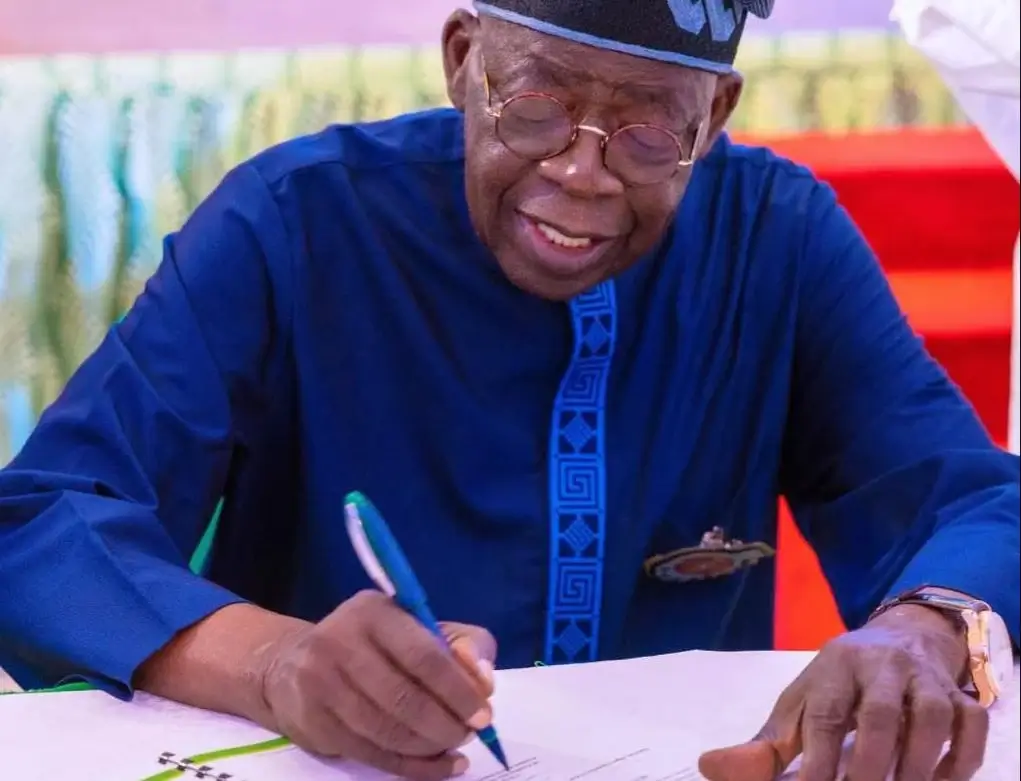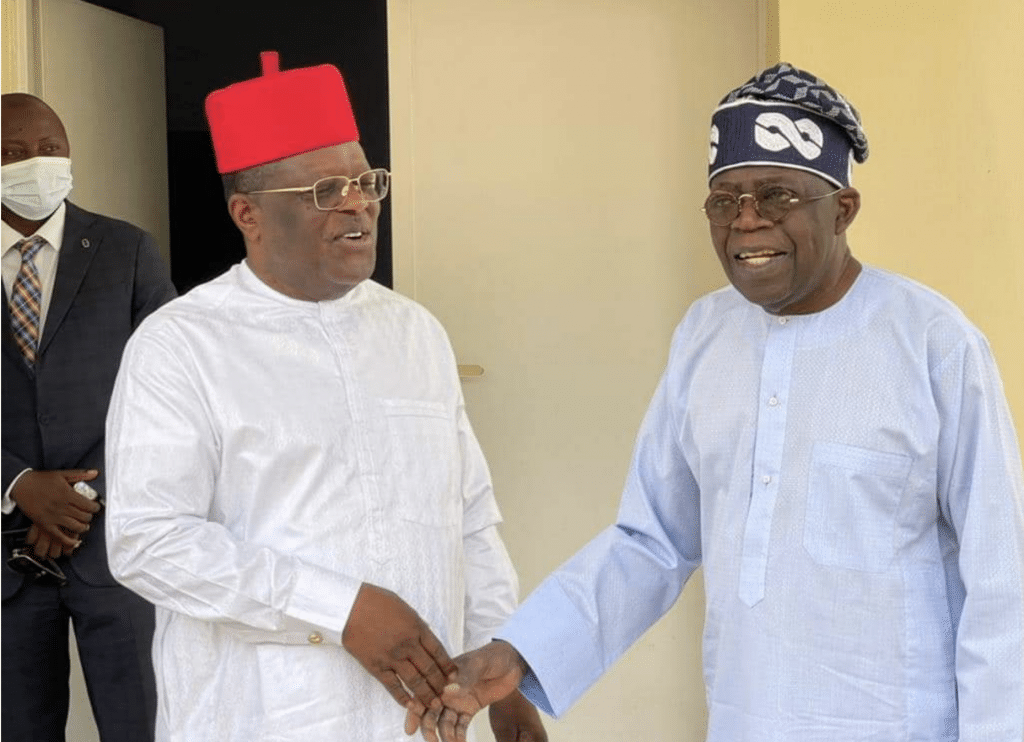SIR: The national dialogue on Artificial Intelligence (AI), organised by International Institute of Online Education (IIOE), Nigeria National Centre, domiciled at Ahmadu Bello University, Zaria, brought together key stakeholders for discussion towards the development of consensus guidelines for responsible, ethical and safe use of AI in Nigerian higher education landscape.
The event, which took place in Abuja on Thursday, July 18, 2024, was jointly put together by the UNESCO International Centre for Higher Education Innovation (UNESCO-ICHEI) and supported by the Nigerian Communications NCC, NITDA, NUC, OANDO, Soft Alliance, Meed Networks, NOUN, and other partners.
Prof Jiansheng Liang, Executive Deputy Director, UNESCO-ICHEI, a body which oversees the IIOE Nigeria National Centre, attended the dialogue in person. Li Xuda, Director, Cultural Counselor of Chinese Embassy in Nigeria, represented His Excellency Cui Jianchun, Chinese Ambassador to Nigeria, at the occasion.
The theme of the one-day dialogue, ‘Consensus Framework towards a Policy/Guidelines Roadmap for Nigerian Higher Education in the Age of Artificial Intelligence’, had been conceived in recognition of the advancements that the artificial intelligence is making in reshaping various facets of society, including the landscape of higher education.
It was also on the premise that AI impact would manifest in the quality of teaching, learning and research activities within the higher education eco-system and in the future workplace; and this has become even more pertinent with the advent of such AI technologies like generative AI and its disruptive impact in higher education in the post-COVID world.
The dialogue was apparently in response to a UNESCO (2023) report. The report, ‘Harnessing the Era of Artificial Intelligence in Higher Education: A Primer for Higher Education Stakeholders’, clearly stated that “…in the immediate future, regardless of location or resource level, is the need for HEI to be equipped to advance in the responsible implementation of AI.”
The Organisation for Economic Cooperation and Development (OECD) defines Artificial Intelligence (AI) as “a machine-based system that can, for a given set of human-defined explicit or implicit objectives, infer, from the input it receives, how to generate outputs such as makes-predictions, content, recommendations, or decisions that can influence physical real or virtual environments.”
It is important that capacity is built within policymaking structures to better understand AI, its possibilities, limitations, and risks in order create interdisciplinary and cross-sectoral platforms for discussions on AI issues, and actively engage a wide range of stakeholders.
The dialogue directly focused on development of consensus that would eventually lead to formulation of policies/guidelines for responsible, ethical and safe use of AI in Nigerian higher education institutions (HEIs), required connectivity and infrastructure to deploy AI tools and technologies in HEIs, training and development, interdisciplinary research on AI and programmes to engender equity and access, bridge the digital divide and overcome marginalization as a result of AI deployed in higher education.
The Vice-Chancellor, Ahmadu Bello University, Prof Kabiru Bala, set the ball rolling, when in his opening remarks at the dialogue, urged participants to brainstorm, learn new ideas and come up with practical solutions. Prof Bala, who is the IIOE Rotating Presidency Unit for 2024, recommended that the Federal Ministry of Education and all other relevant authorities to effectively utilize the outcome of the dialogue in shaping future policy on how best to moderate the inevitable application of AI in the Nigerian higher education.
The Minister of Communications, Innovation and Digital Economy, Dr Bosun Tijani, was delighted to see a diverse gathering of minds from academia, government, industry, and civil society committed to shaping the future of higher education in Nigeria. Tijani, ably represented by Dr Olubunmi Ajala, National Director, National Centre for Artificial Intelligence and Robotics (NCAIR), described as commendable the dialogue’s co-creation approach, similar to the national AI strategy workshop and other policies the Ministry of Communications, Innovation and Digital Economy is working on.
Tijani also said the Ministry recognised that adapting and innovating remained essential to preparing students, lecturers and researchers for the challenges and opportunities of the AI age. The Minister was of the view that the framework to be developed would aid Nigeria’s higher education institutions and empower policymakers, educators, learners, and researchers to use AI as a tool in teaching, learning and research. “This is not about adopting a new technology; it’s about reimagining Nigerian education for the 21st century and beyond”, he emphasized.
For Aminu Maida, Executive Vice Chairman, NCC, Nigeria as a nation stands at the crossroads of an educational revolution, driven by the rapid advancement of artificial intelligence. He argued that the Quadruple Helix Model, which brings together government, academia, industry, and the community, provides a comprehensive framework for ensuring the fair and responsible use of AI in higher education.
In his contributions, the Director-General, NITDA, Kashifu Inuwa Abdullahi, highlighted his agency’s pivotal role in fostering the national AI strategy, nurturing the National Centre for AI and Robotics, and propelling higher education research and development in artificial intelligence. NITDA, according to him, envisions a future where Nigerian universities are not just consumers of AI technology but also developers and active contributors to global AI research and innovation.
NUC was tasked with navigating the transformative landscape of higher education in Nigeria amidst the rise of artificial intelligence. Chris J Maiyaki, the NUC’s Ag. Executive Secretary, who spoke on the policy direction on introduction of AI in teaching, learning and research in Nigerian universities, stressed the urgent need for integration and regulation of the use of AI in education in order to adequately harness its great potentials for growth and development and to ensure its inherent pitfalls are reduced to the barest minimum.
All participants, including keynote speakers and paper presenters, unanimously believe that the fair and responsible use of AI in higher education is a shared responsibility that can harness the full potential of AI while addressing the ethical and social challenges it presents.
Auwalu Umar is Director, Public Affairs Directorate, Ahmadu Bello University, Zaria.

 3 months ago
44
3 months ago
44















 English (US) ·
English (US) ·